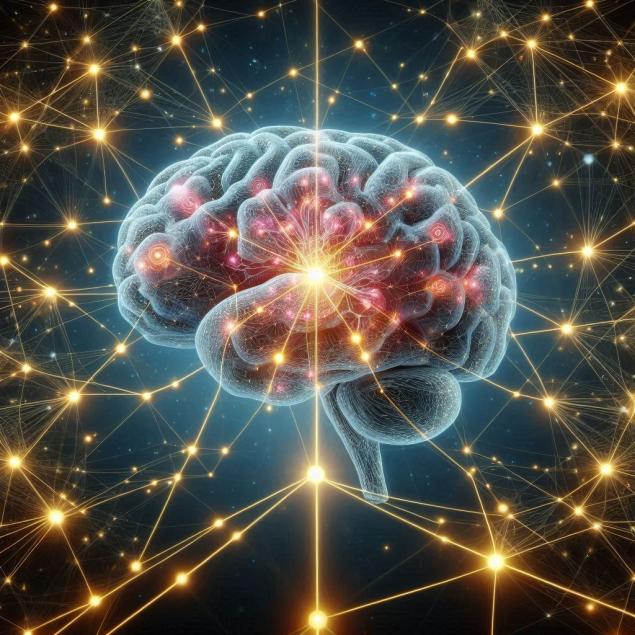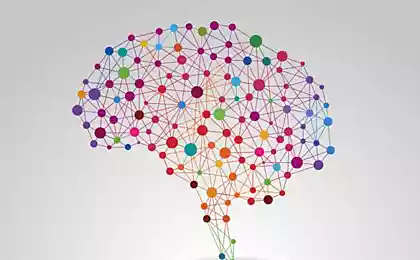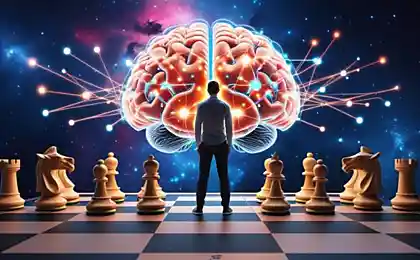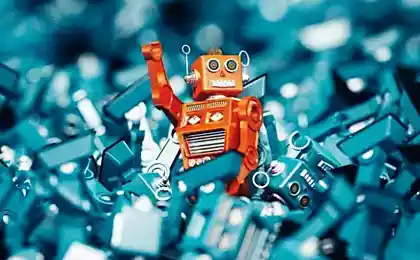234
The Impact of Intelligence on Fate
Ecology of consciousness. Psychology: How mental abilities shape the path of life

High intelligence in itself, although a valuable addition to other useful qualities, does not always guarantee success in life. The paradox of the modern world is that people with outstanding mental abilities are often less successful than their less gifted but more practical contemporaries. What really determines the impact of intelligence on human destiny?
Research from Stanford University has shown that only 25% of life success is directly related to IQ, while the remaining 75% is determined by emotional intelligence, social skills and adaptability.
Multifaceted human intelligence
The traditional understanding of intelligence as a single indicator of mental ability is outdated. Modern psychology distinguishes multiple types of intelligence, each of which in its own way affects the life path of a person. Harvard professor Howard Gardner identified eight basic types of intelligence, from linguistic to musical, from logical-mathematical to intral.
Consider the story of Albert Einstein, who as a child was considered a lagging student. His teachers didn’t see him as a genius, but Einstein’s spatial-visual intelligence allowed him to revolutionize physics. This example demonstrates how different forms of intelligence can manifest at different times and in different areas of life.
Key types of intelligence and their impact on fate:
- Emotional intelligence – the ability to understand and manage emotions
- Social intelligence – the ability to build relationships and influence people
- Practical intelligence – the ability to solve everyday tasks
- Creative intelligence – generation of new ideas and non-standard solutions
- Adaptive Intelligence: Flexibility of Thinking in Changing Conditions
The Paradoxes of High IQ

Studies show a surprising pattern: people with exceptionally high IQs (above 160) often face serious life difficulties. A longitudinal study by Lewis Terman, begun in 1921 and spanning decades, found that out of 1,500 children with high IQs, only a small fraction achieved outstanding success in adulthood.
The reasons for this paradox lie in the specific characteristics of highly intelligent people. They often suffer from perfectionism, which paralyzes their ability to act. Fear of making a mistake becomes an obstacle to making risky but potentially profitable decisions. In addition, high intelligence can lead to social isolation, as such people find it difficult to find like-minded people at their level.
Problems with high IQ:
Perfectionism and procrastination; Social isolation and communication difficulties Proneness to deep analysis instead of quick decisions Underestimating the importance of practical skills; Increased sensitivity to criticism and failure.
Emotional Intelligence as the Key to Success
Daniel Goleman, in his groundbreaking work Emotional Intelligence, convincingly proved that the ability to understand and manage emotions is often more important than traditional IQ. People with developed emotional intelligence cope better with stress, manage teams more effectively and make more informed decisions.
The story of Oprah Winfrey is a prime example of the triumph of emotional intelligence. Despite a difficult childhood and lack of formal education in prestigious educational institutions, she has become one of the most influential media figures in the world due to her ability to understand and inspire people.
Components of Emotional Intelligence
Emotional awareness allows a person to accurately recognize their emotions and understand their impact on thinking and behavior. Self-control allows you to manage destructive emotions and impulses. Motivation helps you focus on achieving goals despite obstacles. Empathy provides insight into other people’s emotions. Social skills allow you to effectively manage relationships and build networks of contacts.

Practical strategies for the development of versatile intelligence
Specific recommendations for the development of intellectual abilities:
Keep a journal of emotions. Record your emotional reactions to various events every day. Analyze patterns and triggers. This will help develop emotional awareness and self-control.
Practice active listening. In conversations, focus not on the formulation of the answer, but on the understanding of the interlocutor. Ask clarifying questions, paraphrase what you heard. It develops empathy and social skills.
Solve tasks outside your comfort zone. Regularly take on projects that require new skills. Learn foreign languages, learn musical instruments, learn to program. This develops the neuroplasticity of the brain.
Develop critical thinking. Analyze information from different sources, identify logical errors, formulate alternative points of view. Read works that challenge your beliefs.
The role of social intelligence in achieving goals
Social intelligence is the ability to understand and function effectively in social situations. People with high social intelligence can read nonverbal cues, sense group dynamics, and adapt their behavior to different social contexts.
A Harvard Business School study found that executives with high social intelligence are 58% more effective at achieving business goals. They motivate employees better, negotiate better and create a more positive working environment.
Social intelligence can be developed through the practice of conscious communication, the study of group psychology, participation in team projects, and regular reflection on social interactions.
Adaptability as a key advantage
In a rapidly changing world, the ability to adapt becomes critical. Adaptive intelligence includes the flexibility of thinking, the ability to quickly learn new things and function effectively in uncertain conditions.
Google and Apple are actively looking for employees not only with high technical skills, but also with a developed ability to adapt. Such specialists are easier to master new technologies, adapt faster to changes in the market and work more effectively in interdisciplinary teams.
Methods of development of adaptability
- Change your routine regularly and try new approaches to solving problems.
- Study different areas of knowledge to broaden your horizons
- Practice meditation and mindfulness for mental flexibility
- Participate in projects that require an interdisciplinary approach
- Travel and immerse yourself in different cultural contexts
One of the most important aspects of the influence of intelligence on fate is the quality of decisions made. Research shows that people with high analytical intelligence do not always make better life decisions. They often fall prey to the paralysis of analysis, endlessly weighing all possible options instead of acting.
Nobel laureate Daniel Kahneman, in his work Think Slow, Decide Fast, explained how cognitive distortions affect decision-making even in highly intelligent people. The ability to recognize and compensate for these distortions becomes a key skill for the effective use of intellectual abilities.
Lifehack for better solutions: Use the 10-10-10 rule. Before an important decision, ask yourself: How will I feel about this in 10 minutes, 10 months and 10 years? This will help balance the emotional and rational aspects of choice.
Creative intelligence and innovation
Creative intelligence is the ability to generate original ideas and find non-standard solutions to problems. In the era of automation and artificial intelligence, creativity is becoming the main competitive advantage of man.
Steve Jobs, despite his lack of technical education, revolutionized several industries at once due to his creative vision and ability to connect seemingly unrelated fields. His approach to Apple product design combined technical innovation with a deep understanding of human psychology and aesthetics.
Conclusion: Integration of Different Forms of Intelligence
The influence of intelligence on fate is determined not by individual cognitive abilities, but by their harmonious integration. Successful people combine analytical thinking with emotional wisdom, creativity with practicality, high standards with flexibility.
The main secret is to understand that intelligence is not a static characteristic, but a dynamic set of skills that can be developed throughout life. By investing in the development of various forms of intelligence, we create the foundation for a more fulfilling and successful life.
Glossary
IQ (Intelligence Quotient) An indicator of intellectual development of a person, determined using standardized tests.
Emotional intelligence A person’s ability to recognize emotions, understand the intentions, motivations and desires of others and their own.
Neuroplasticity The ability of the brain to change its structure and function in response to experience and learning.
Cognitive distortions Systematic errors in thinking that affect decision-making and judgment.
Longitudinal study A scientific method in which the same subjects are studied for a long time.
mindfulness Practice conscious presence in the present moment without judgment.
Social intelligence The ability to understand people and social situations, effectively interact with others.
Exercise to diagnose the psychological causes of diseases
10 Signs You’re a Dynamic Personality and That’s Good























